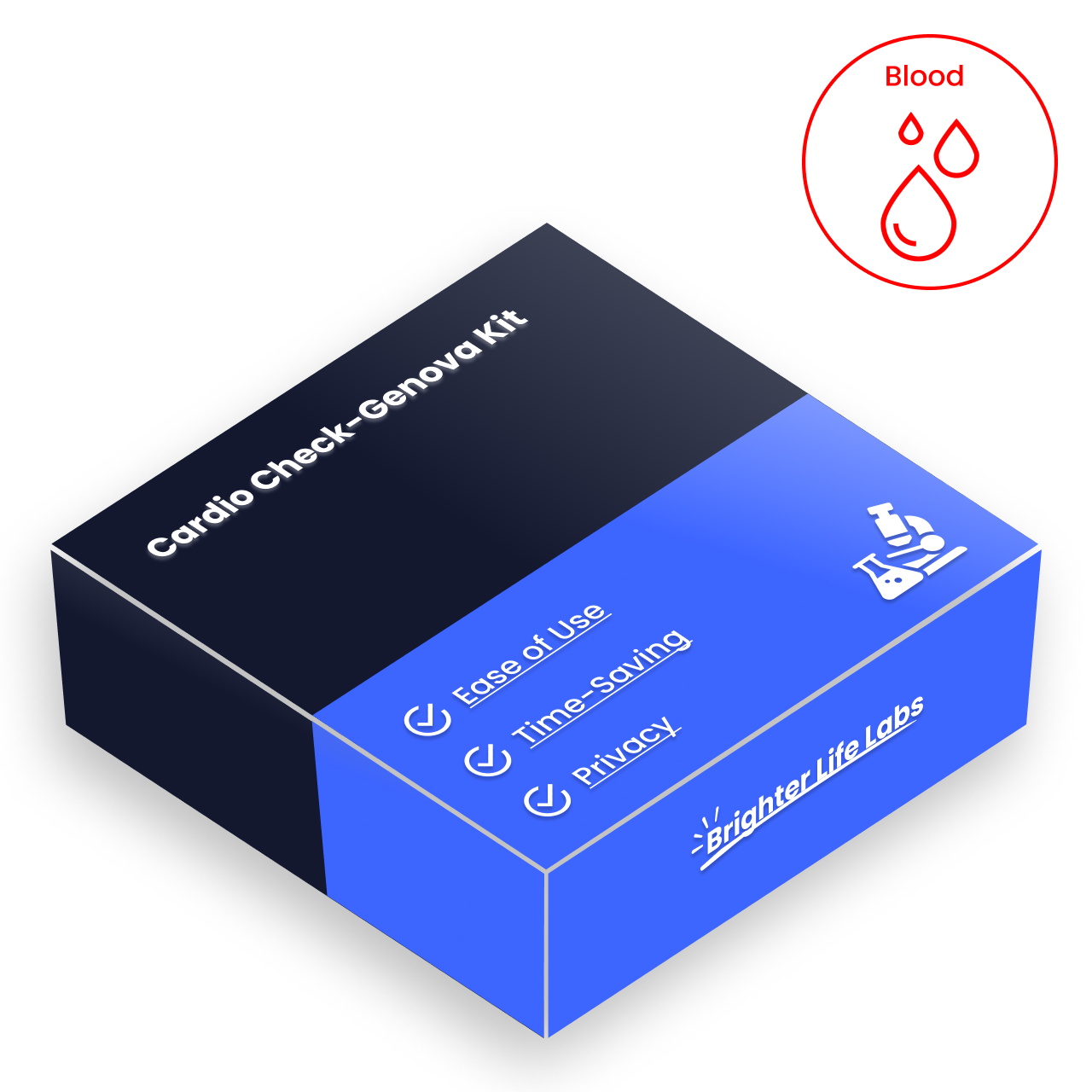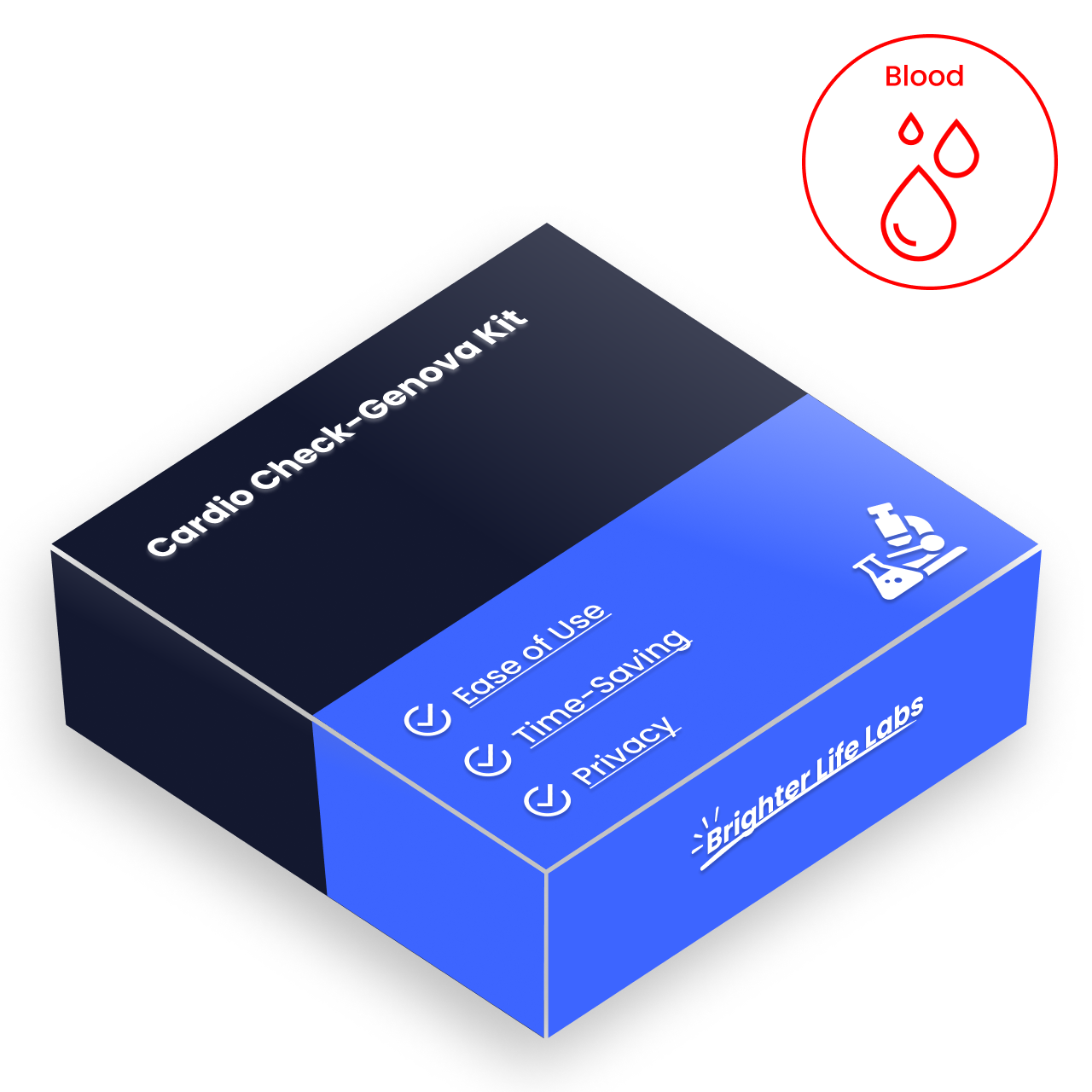1
/
of
1
Genova
Cardio Check-Genova Kit
Cardio Check-Genova Kit
Regular price
$379.00 USD
Regular price
Sale price
$379.00 USD
Unit price
/
per
Shipping calculated at checkout.
Couldn't load pickup availability
Note: This is a test kit that will be mailed to you. It requires a blood draw. It is your responsibility to arrange the blood draw for your kit and payment of your specimen collection.
Fasting Required:
Yes, 12 hours
Lab:
Genova Diagnostics
Specimen:
Blood
Results:
Average processing time 7-10 business days
Note: Result turnaround times are an estimate and are not guaranteed. Our reference lab may need additional time due to weather, holidays, confirmation/repeat testing, or equipment maintenance.
Special Instruction:
4 Days before Collection:
Consult your healthcare provider about stopping medications and supplements.
24 Hours Before Collection:
Eat usual diet but avoid over-eating any single food or consuming an extreme diet. Consume no more than six 8-ounce glasses of fluid over the 24 hours before collection.
Night Before Collection:
Fast overnight. Water is okay. Freeze freezer brick at least 8 hours.
Morning of Collection:
Collect urine immediately upon waking.
Description:
The Cardio Check Profile is an advanced blood assessment of lipids and cardiometabolic analytes providing insight regarding independent risk. Combining the best of conventional and functional laboratory biomarkers, the profile evaluates cholesterol and triglyceride levels, as well as targeted apolipoproteins, important ratios, high sensitivity CRP, and homocysteine. The biomarkers on the Cardio Check are arranged as follows (see sample report for individual analytes):
Lipids:
LDL-C (low density lipoprotein)
is the form of cholesterol that can deposit in plaques ("bad cholesterol") and is the primary target of cholesterol-lowering therapy
HDL-C (high density lipoprotein)
promotes reverse cholesterol transport, carrying LDL cholesterol away from the arteries and back to the liver to be excreted as bile ("good cholesterol")
Triglycerides (TG)
are the most common type of fat in the body and store excess energy from the diet - well-established marker of CVD risk
Total Cholesterol (TC)
includes LDL, VLDL, and HDL cholesterol and levels correlate with atherosclerotic CVD
Lipid Ratios:
Multiple epidemiological studies have shown that lipoprotein ratios have a greater correlation with CVD and are better predictors than individual lipid measurements8
TC/HDL Ratio
predicts the formation of coronary plaques and coronary heart disease; the higher the ratio, the greater the risk for developing atherosclerosis8-10
TG/HDL Ratio
has been shown to predict both metabolic and cardiovascular risk and is associated with insulin resistance8 Apolipoproteins
Apo A-1
is the main structural component of HDL and assists in reverse cholesterol transport (HDL is "good cholesterol")
Apo B
is the main component of atherogenic lipoprotein particles, i.e. LDL, Lp(a), and others (LDL is "bad cholesterol"); Apo B is a stronger indicator of atherogenicity than LDL-C alone11,12
Apo B/Apo A-1 Ratio
has been shown in multiple studies to have a higher predictive ability for metabolic syndrome, CVD, obesity, insulin resistance, diabetes, MI, and early atherosclerosis as compared to standard lipid evaluations13-18
Lp(a)
is a type of lipoprotein that is primarily genetically determined and causes damage via inflammation and oxidative stress
Cardiometabolic Markers
hsCRP
is an inflammatory marker
Homocysteine
is part of the methylation pathway and is toxic to the endothelium contributing to damage and atherosclerosis
Share


